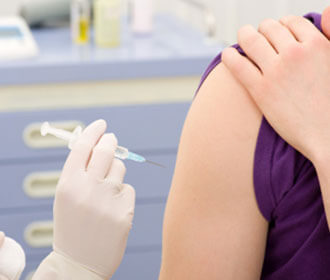Adults: Are Your Vaccinations up to Date?
 David Hutchinson, MD, Family Medicine, Lester River Medical Clinic
David Hutchinson, MD, Family Medicine, Lester River Medical Clinic
There's a lot of focus on ensuring children are properly vaccinated, but what about adults? Do they need to keep their vaccinations up to date? "Yes, says David Hutchinson, MD, family medicine physician at St. Luke's Lester River Medical Clinic. "It is important to remember that vaccines are something that we do for others. We don't live in isolation, we live in community. We lower risk for ourselves with immunizations, but at least as importantly, we lower risk for others by staying current on recommended vaccines."
While you may have been current in the past, it's important to talk to your doctor to ensure you are truly up-to-date. "Vaccine science evolves and changes," says Dr. Hutchinson. "For example, most people are aware of the tetanus booster, but some aren't aware of the pertussis booster that can come with it. That is a relatively recent change." Pertussis, or whooping cough, can be severe for adults, but it can also be especially harmful to babies. Of the children under one year of age who are diagnosed with pertussis, up to 50 percent end up in the hospital, according to the Centers for Disease Control (CDC). Adults can transmit the disease when they are sick, and can also unknowingly carry the bacteria and spread the disease; getting the booster helps protect children.
The CDC has a chart that shows the recommended adult vaccinations for each age group, ages 19 to 65 and older. The CDC also has an interactive What Vaccines Do You Need? quiz. You can take the quiz, print out the results and take it to your doctor to review. "We need the chance to talk to people regularly about recommended vaccines," says Dr. Hutchinson. "Vaccine recommendations differ with our age. For example, vaccination is routinely recommended against a common form of pneumonia, beginning at age 65, and a vaccine to limit the personal risk of shingles is routinely recommended after age 60. It's also important to remember that some people , depending on health status and medications, shouldn't have certain vaccines. Some people also have health conditions that warrant extra vaccines." That's why it's really important to talk to your doctor about what's right for you. Says Dr. Hutchinson, "Vaccines have been one of the most important and impactful health tools of the last 80 years. I see it as a social responsibility to consider them individually, in consultation with our personal physicians - for our individual health, and for the well-being of our neighborhoods and community".

